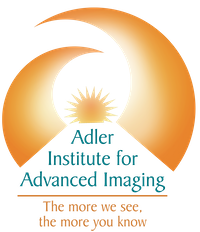Use of PET/CT in Brain Disorders
 PET/CT is used to perform scans of the brain which provide information for assessing several neurological diseases including Alzheimer’s Disease, Parkinson’s Disease, Huntington’s Disease, and dementias. A PET/CT scan of the brain involves a radiopharmaceutical that helps to create a normal versus abnormal map of brain functionality. Mapping distinctive patterns of metabolism assists physicians in accurately diagnosing patients and treating them appropriately.
PET/CT is used to perform scans of the brain which provide information for assessing several neurological diseases including Alzheimer’s Disease, Parkinson’s Disease, Huntington’s Disease, and dementias. A PET/CT scan of the brain involves a radiopharmaceutical that helps to create a normal versus abnormal map of brain functionality. Mapping distinctive patterns of metabolism assists physicians in accurately diagnosing patients and treating them appropriately.
PET/CT scans are also used in cases of epilepsy, to help localize the seizure focus in patients with seizure disorders, and in stroke, to evaluate the extent of stroke damage and to monitor recovery following therapy.
Adler Imaging has been at the forefront of Amyloid Imaging since 2007. We took part in early studies with radiotracers that were designed to specifically highlight amyloid pathology. These clinical trials ushered in a new era for visualizing the changes in brain physiology and functioning caused by amyloid deposits described as amyloid plaques in the brain.
Development of medications to treat Mild Cognitive Impairment and Alzheimer’s Disease moved ahead at a faster pace than ever before and the time had come when you could watch not only changes seen on clinical exam but also changes seen in brain health captured by PET/CT imaging.
Leqembi has been developed to specifically target MCI and AD. The FDA granted approval to Leqembi in October 2023. A screening protocol that includes a PET/CT has been developed to identify individuals who may benefit from this new drug.
Since those early days in 2007 Adler Imaging has taken part in approximately 100 different clinical trials investigating the effectiveness of new medications designed to treat, and hopefully begin to change forever what it means to be diagnosed with MCI or Alzheimer’s Disease.

